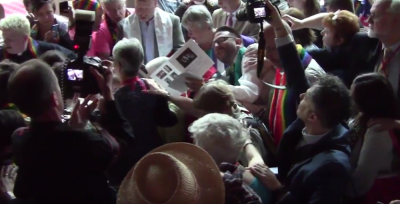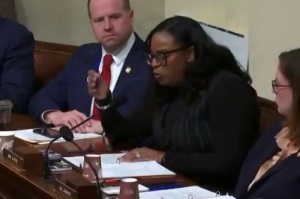United Methodist High Court Rejects Attempts to Strike Down Church's Stance Labeling Homosexuality a Sin

The United Methodist Church's highest court declined two petitions attempting to get a ruling labeling the denomination's official stance against homosexuality unconstitutional.
In two memorandums issued last Friday, the United Methodist Judicial Council refused to rule on the requests of the California-Pacific Annual Conference and the Denmark Annual Conference.
At issue was the UMC Book of Discipline's declaration that homosexuality is "incompatible with Christian teaching."
In Memorandum No. 1347 and Memorandum No. 1354, the Judicial Council concluded that it did not have the authority to rule on the constitutionality of the "incompatible" language.

"The Judicial Council has no jurisdiction to answer questions from an annual conference that do not relate to annual conference or the work therein," read Memo 1347.
"There is no showing in the record supplied that the request for a declaratory decision was germane to annual conference or the work therein, or that the request related to some action taken or to be taken by the Annual Conference."
The Council went on to note that for them to have jurisdiction "the question submitted for declaratory decision must have a direct and tangible effect on the work of the body submitting the petition."
Earlier this year at their official meetings, the Denmark Conference and the California-Pacific Conference approved similar measures calling on the Judicial Council to make a ruling as to the constitutionality of the UMC's position on homosexuality.
"The Denmark Conference, meeting in Copenhagen on May 13, approved a motion by the Rev. Jørgen Thaarup seeking a declaratory judgment by the court," reported the United Methodist News Service in June.
"On June 17, the California-Pacific Conference approved a shorter but similar motion from the Rev. James Dwyer, a retired elder who attends Claremont (California) United Methodist Church. Dwyer said he had learned of Thaarup's effort and wanted the California-Pacific Conference to know about it too."
The attempt to get the Judicial Council to rule the "incompatible" language unconstitutional was the latest failed attempt by theologically liberal United Methodists to change the mainline denomination's official position against homosexuality and gay marriage.
John Lomperis of the theologically conservative Institute on Religion & Democracy argued in a recent entry on the organization's website that the conferences' requests were part of an overall change in strategy against the "incompatible" language.
"When I was in the very liberal environment of Harvard Divinity School, I found that people there had for the most part given up on earlier efforts to argue that the Bible does not really condemn consensual homosexual practice," wrote Lomperis.
"With that particular academic debate having been settled in favor of traditionalist interpretations, the broader efforts of seeking church approval for homosexual unions have moved on to other arguments, from more honestly attacking high views of biblical authority to arguing largely on the basis of emotions and subjective personal testimonials."



























